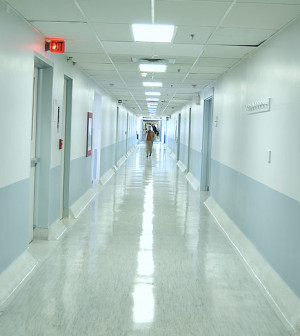- Could Your Grocery Store Meat Be Causing Recurring UTIs?
- Are You Making This Expensive Thermostat Error This Winter?
- Recognizing the Signs of Hypothyroidism
- 10 Strategies to Overcome Insomnia
- Could Artificial Sweeteners Be Aging the Brain Faster?
- Techniques for Soothing Your Nervous System
- Does the Water in Your House Smell Funny? Here’s Why
- Can a Daily Dose of Apple Cider Vinegar Actually Aid Weight Loss?
- 6 Health Beverages That Can Actually Spike Your Blood Sugar
- Treatment Options for Social Anxiety Disorder
Health Highlights: July 24, 2014


Here are some of the latest health and medical news developments, compiled by the editors of HealthDay:
CDC Lab Director Resigns Following Anthrax Scare
The director of the U.S. Centers for Disease Control and Prevention bioterrorism lab that was tied to a recent potential anthrax exposure has resigned.
According to the CDC, the potential exposure occurred between June 6 and 13 at the Bioterrorism Rapid Response and Advanced Technology (BRRAT) Laboratory. Lab staff had been prepping anthrax samples for use in other CDC labs in Atlanta and neglected to deactivate the samples, CNN reported.
BRRAT director Michael Farrell submitted his resignation Tuesday, CDC spokesman Tom Skinner told CNN. He had already been reassigned elsewhere once the anthrax scare became public.
The CDC’s investigative report into the incident found that the oversight happened because the lab failed to follow approved sterilization methods, among other reasons.
“The scientists failed to follow a scientifically derived and reviewed protocol that would have assured the anthrax was deactivated,” agency director Tom Frieden told CNN.
—–
Leading Doctor in Sierra Leone Ebola Outbreak Is Now Infected
One of the leading physicians in the battle against an outbreak of deadly Ebola virus in Sierra Leone has himself become infected with the illness, news reports say.
According to UPI, Dr. Sheikh Uman Khan is now in a hospital in Kailahun, the epicenter of the epidemic in the West African nation. Ebola spreads easily between people and kills up to 90 percent of those infected. The World Health Organization says that, as of July 19, a total of 632 people have died in the outbreak in Guinea, Liberia and Sierra Leone.
Also according to UPI, health workers are among those falling ill. Sierra Leone newspaper Awareness Times reported that on Tuesday “four popular and dedicated health workers attached to Ebola center located inside Kenema Government Hospital have lost their lives.”
There is currently no cure or antivirus against Ebola.
Copyright © 2026 HealthDay. All rights reserved.










